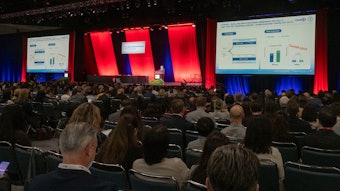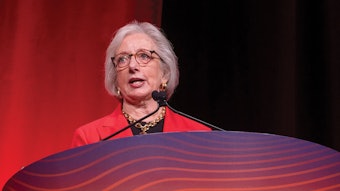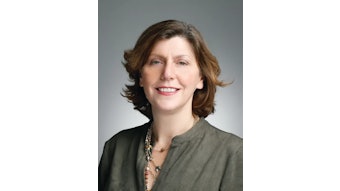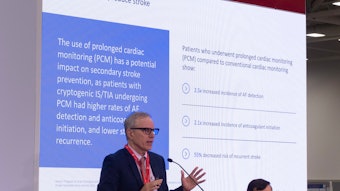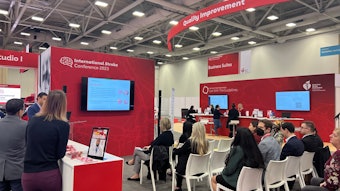Miles to go for equitable care in cerebrovascular disease
Pre-conference symposium lays the groundwork for growth.

HEADS-UP: Health Equity and Actionable Disparities in Stroke: Understanding and Problem-Solving
8:30 a.m.-5:45 p.m. | Tuesday, Feb. 4
Room 408AB
It’s 2025, and racial and ethnic disparities in cerebrovascular disease remain a significant challenge. Due to a combination of adverse social determinants of health, public policy and a fractured health care system, many longtime and new-to-the-field clinicians struggle to overcome the rising challenge.
One strategy for increasing both awareness and translational research to address the problem has been the HEADS-UP program, a collaborative initiative between the American Stroke Association (ASA) and the National Institutes for Neurological Disorders and Stroke (NINDS). The initiative is featured annually at the International Stroke Conference and will again take center stage at the pre-conference symposium on Tuesday, Feb. 4, in Los Angeles. HEADS-UP Chair Amytis Towfighi, MD, FAHA, professor of neurology at Keck School of Medicine at the University of Southern California in Los Angeles and chief of neurology and associate medical director of research at Los Angeles General Medical Center, calls the challenge “critical.”
“Despite growing awareness about inequities and improvements in care delivery with the implementation of regionalized stroke care and stroke center certification, tremendous inequities remain in cerebrovascular disease incidence, care and outcomes,” Dr. Towfighi said. “Interventions have focused on addressing intermediate determinants (implementation of evidence-based care) and downstream determinants (health literacy) without addressing the fundamental drivers of inequities. To achieve the most profound population impact, it is critical to address fundamental social determinants of health.”
Adverse social determinants of health are at the heart of inequities, Dr. Towfighi said, and myriad reasons contribute, including policies resulting in unequal distribution of resources, political influence, wealth and education, which are fundamental drivers of stroke inequities. Intermediate drivers include health care system factors (access, coverage, provider culture and language concordant care) and the built environment (access to healthy food, housing safety, air and water quality and transportation). More proximate factors include psychosocial factors (stress, depression, perceived racism and discrimination) as well as sociocultural factors (social isolation, immigration, acculturation, and health literacy). All factors affect both knowledge and behaviors.
Janet Prvu Bettger, PhD, symposium vice chair, will also drive the multidisciplinary scientific discussion with the overarching goal of reducing disparities in stroke and accelerating translation of research findings to improve outcomes for race-ethnic minorities. Dr. Bettger is professor and vice chair of research for the department of physical medicine and rehabilitation at the University of North Carolina at Chapel Hill School of Medicine. In addition to the lectures presented by leaders in the field, 20, early-career scholars will present their disparities research work at a dedicated poster session and participate in career development sessions.
During the symposium, Virginia J. Howard, PhD, FAHA, will be honored as the 2025 recipient of the Edgar J. Kenton III Award. Dr. Howard is a distinguished professor at the University of Alabama at Birmingham (UAB) in Birmingham, Alabama.
“This prestigious honor recognizes her extraordinary and far-reaching contributions in delineating stroke inequities — work that has not only deepened our understanding of these disparities but has also paved the way for meaningful change in the field,” Dr. Towfighi said.
The late Edgar Kenton, MD, an eminent Black vascular neurologist, served as a professor of neurology at Temple University, Thomas Jefferson University Hospital and Morehouse School of Medicine, where he directed the Stroke Prevention Intervention Research Program. He served as chair of the American Heart Association Stroke Council, was a member of the National Institute of Neurological Disorders and Stroke Advisory Council and a member of the American Academy of Neurology Board of Directors. Dr. Kenton was passionate about bridging racial and ethnic disparities in stroke. The Edgar J. Kenton III award is named in honor of his profound contributions to the field through his leadership, mentorship, and research.
According to Dr. Bettger, there have been numerous strategies to address racial and ethnic inequities in stroke, including emergency preparedness interventions to enhance the ability to recognize stroke symptoms and activate emergency medical services, interventions to ensure evidence-based acute care delivery and programs to improve risk factor control after stroke.
“One of the most successful strategies has been the implementation of regionalized stroke care and stroke certification in the U.S. However, Black and Hispanic individuals are still less likely to receive intravenous thrombolysis and mechanical thrombectomy for stroke than White individuals,” she said.
Inequities persist in the access to acute stroke care largely because of delayed symptom recognition, poor access to care, delayed ED presentation, implicit bias, longer wait times in the ED until initial evaluation, differences in contraindications and patient preferences, she added. Most interventions have focused on patient- and provider-level education, counseling and behavior change (of both clinicians and patients). According to Dr. Towfighi, these strategies are time-consuming, resource intensive, difficult to implement and require great individual effort. To have a larger population impact, more policies and strategies need to address fundamental adverse social determinants of health and make the default choices healthier.
Dr. Bettger reminds clinicians that one of the ways in which HEADS-UP helps is by providing junior investigators from underrepresented backgrounds with mentorship, training and networking opportunities, expanding and diversifying the community of researchers in stroke inequities and shared strategies to enhance representation in research.
“Representation in research is critical. Historically marginalized populations remain grossly underrepresented in clinical trials. Intensive efforts to address barriers to recruitment and retention are critical,” Dr. Towfighi said. “Each session will be kicked off by a person with lived experience. By ensuring that stroke survivors are engaged throughout the symposium, we will deepen people’s understanding about the unique challenges faced by individuals from historically minoritized populations.”
See Online Program Planner for more information.

